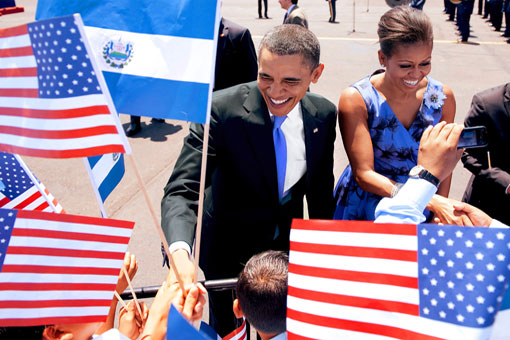The Portuguese Daily Economico recently asked on our open forum to answer a few questions regarding the comments made by Venezuelan President Hugo Chavez during the week of 10 August about “winds of war” blowing in the region. Below is the response to those questions:
- How do you interpret the declarations of president Chávez about the “risk of a war in the region”? Do you think this increases the risk of a war?
Chávez’s comments most likely do not significantly increase the risk of war in the region. In March 2008, when Colombia launched an attack on a leading FARC commander that spilled over into Ecuadorian territory, Chávez reacted in a similarly dramatic fashion, cutting off diplomatic ties with Colombia and demanding on public television that his Defense Minister immediately send troops to the Colombian border to “protect” Venezuela against potential aggression from Colombia – a move that succeeded in catching the attention of international media. He
may be doing something similar here in an effort to gain publicity as the main crusader against perceived US imperialism in the region. Chávez has made exaggerated remarks like this in the past, and most have amounted to little except for increased diplomatic tensions and political polarization of Latin America.
- How could Colombia convince its neighbors about the US’s use of their military bases?
Regardless of what they do, Colombia will have difficulty convincing its immediate neighbors (Venezuela and Ecuador) that allowing the United States to use up to seven of their bases is justified. There is a lot of animosity between Colombian President Álvaro Uribe and his Venezuelan and Ecuadorian counterparts. Ever since the attack of 1 March 2008 on Ecuadorian territory, which the Colombian militarycarried out with intelligence supplied by the United States, sovereignty has been a key issue in the Andes. Both Venezuela and Ecuador are wary of any US influence in the region. The key for Colombia convincing its neighbors that this initiative is justified is whether Brazil, who is an emerging power in regional security in South America, supports it. Brazil’s opinion and influence may be enough to convince the rest of South America that the move is warranted.
- In September, Latin American nations will meet with the United States to debate the future of their relations. Which priorities should be discussed?
The September meeting will be pivotal to the United States’ relationship with Latin America during the rest of President Obama’s administration. The United States should address the growing diplomatic and political gap between nations in Latin America that oppose it, and nations that support it. This issue has been at the root of political tension in the region, and is a major contributor to the current situation in Colombia. Latin American nations should look for ways to engage the US as a partner on equal footing, as opposed to the preferential status afforded them in years past. The United States and Latin America share a very close and very important relationship. It is imperative that they do not let local regional tensions and past political mistakes interfere with future progress.

Reply